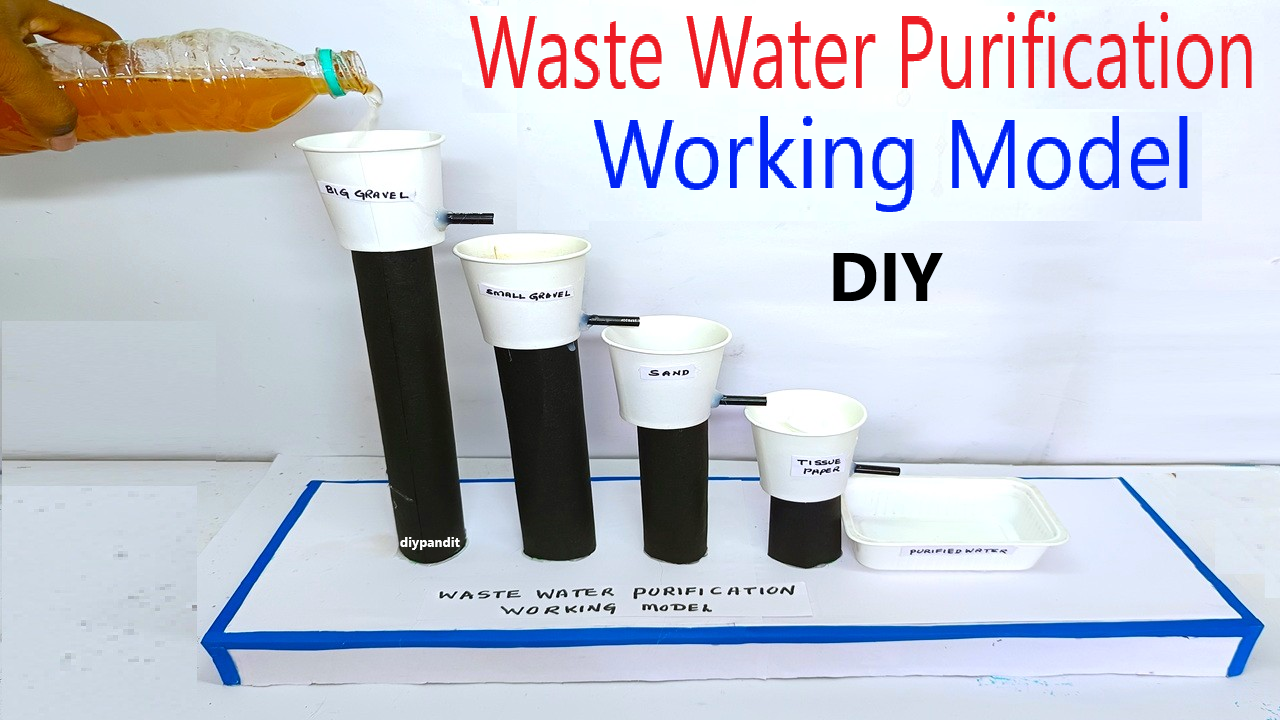Resource management is the process of efficiently planning, using, and conserving natural and human-made resources to meet present and future needs. It ensures sustainability, reduces waste, and improves productivity.
1. Rainwater Harvesting Model
- Demonstrate how rainwater can be collected, stored, and reused for agriculture and household use.
- Use a bottle, pipes, and a tank to show water flow.
2. Drip Irrigation System Model
- Show how drip irrigation helps save water in farming.
- Use a plastic bottle and small pipes to deliver water drop by drop to plants.
3. Solar Energy Utilization Model
- Create a solar-powered house or streetlight using a solar panel, LED light, and battery.
4. Wind Energy Model
- Build a small wind turbine using a DC motor and fan blades to generate electricity.
5. Hydroelectric Power Plant Model
- Show how flowing water turns a turbine to generate electricity.
- Use a waterwheel and dynamo to light an LED.
6. Wastewater Purification Model
- Demonstrate how dirty water is filtered using gravel, sand, charcoal, and cotton.
- Explain how wastewater can be recycled.
7. Biogas Plant Model
- Show how organic waste like cow dung is converted into biogas for cooking.
- Use a balloon to represent gas collection.
8. Composting Model
- Create a vermicomposting bin to show how earthworms help convert kitchen waste into organic manure.
9. Smart Irrigation Model
- Show how moisture sensors detect dry soil and automatically turn on irrigation.
- Use an Arduino or a simple switch system.
10. Water Conservation in Agriculture Model
- Compare traditional vs. modern farming methods like mulching, contour farming, and check dams.
11. Afforestation and Deforestation Model
- Show how planting trees helps maintain resources like soil and water.
- Use a before-and-after forest setup.
12. Plastic Waste Management Model
- Show different ways of reducing, reusing, and recycling plastic waste.
- Include biodegradable alternatives like cloth bags.
13. Smart City Resource Management Model
- Create a miniature city with solar lights, rainwater harvesting, and waste segregation systems.
14. Industrial Wastewater Treatment Model
- Demonstrate how industries can filter and recycle wastewater.
- Use chemical and biological treatment methods.
15. Greywater Recycling Model
- Show how used water from sinks and washing machines can be filtered and reused for gardening.
16. Energy-Efficient House Model
- Show how insulation, solar panels, and energy-efficient devices reduce resource consumption.
17. Recycling Paper Model
- Demonstrate how to recycle old paper into new sheets using water, glue, and a screen.
18. Sustainable Fishing Model
- Show how overfishing affects marine life and ways to manage fish populations.
- Use a pond model with fish lifecycle stages.
19. Smart Traffic Management Model
- Show how intelligent traffic lights and public transport reduce fuel consumption and pollution.
20. Natural Disaster Resource Management Model
- Explain how resources are managed during and after disasters.
- Include emergency shelters, food supply chains, and medical response units.
Conclusion
These models demonstrate efficient ways to manage water, energy, and waste for a sustainable future.

